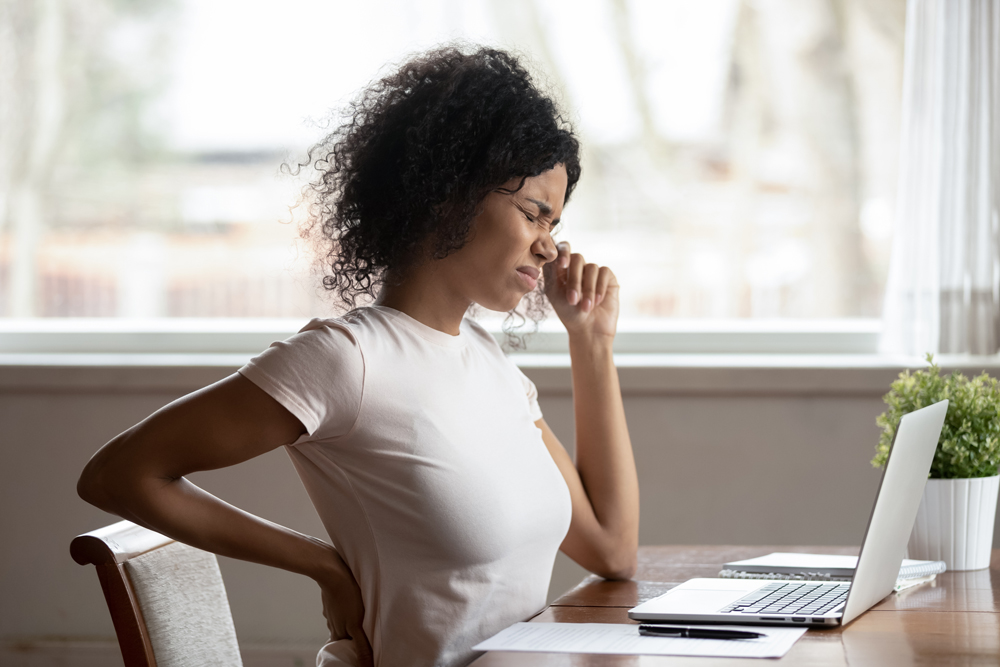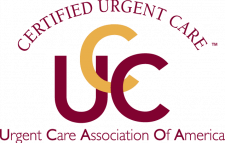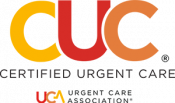Approximately 80% of people will experience back pain at some point in their lifetime. It is often the result of age, injury or surgery. Throwing your back out is a common phrase that people use when they’re experiencing sudden back pain, stiffness or discomfort. It’s a very common injury and can be caused by muscle strain, spasm, broken vertebrae or a slipped or ruptured (herniated) disk. It usually occurs in the lower back and happens when a person lifts heavy objects or bends forward in an awkward position.
Back pain resulting from a thrown-out back should resolve within 1-2 weeks and should not cause additional symptoms. If pain persists for longer than 2 weeks or other symptoms are present, it’s important to visit your doctor or local urgent care as soon as possible to avoid complications.
Throwing out your back can be extremely painful and often includes the following symptoms:
- Stiffness
- Inability to move
- Tightening of the muscles
- Localized pain
- Muscle spasms
What to do when you throw your back out
Here are a few ways you can help heal your back and get on your feet again:
- Straighten up
If you’ve just thrown out your back, the first thing you should do is get upright and put your spine into a neutral position. Maintaining good posture will keep you from doing further damage. - Avoid bending, lifting or twisting
Once you are upright and stabilized, do whatever you can to stay that way to avoid further complications. If you need to bend down or lean slightly forward to reach something, keep your back straight by squatting down or bending at the hips. This will help alleviate stress on your back and avoid further agitation. - Get Rest
One of the best things you can do when you throw out your back is to rest and give your muscles time to recover. Lower back muscles are responsible for rotating and flexing the hips while walking or running as well as supporting the spinal column throughout your normal daily activities. Take a break from your normal routine and give your muscles time to heal properly. - Treat the pain
Back pain can make it difficult to rest comfortably, so it’s important to manage pain levels. Try applying ice packs to the injured area for about 20-30 minutes a few times a day to ease inflammation and swelling. You can also take over-the-counter pain relievers, like Ibuprofen, to reduce pain and inflammation. Applying heat over the affected area can also have the same effect. - Exercise
Though physical activity might be the last thing on your mind, easing back into exercise after a few days of rest will help increase circulation to encourage healing and keep the muscles loose. Start with a few gentle stretches and avoid lifting heavy weights or high-intensity exercises that require twisting or bending. Basic movements that aid in strengthening the core, pelvis and spine include planks, side planks, single-arm side planks and bird dogs. - See a doctor
If your pain is persistent, affecting your quality of life, not responding to over-the-counter medications and lasts for more than 3 days, it’s time to seek medical advice. Your doctor will provide a comprehensive physical exam as well as one or more of the following treatments to determine the root cause of your pain: x-rays, CT scans, or MRIs. Once they’ve made a diagnosis, they can discuss treatment and medication options.
How to avoid throwing your back out
Although throwing your back out isn’t always preventable, here are a few things you can do to help lower your risk:
- Stretch and exercise the back regularly, especially before and after exercise
- Practice good posture while sitting and standing
- Use ergonomically designed furniture and equipment at work and home
- Wear shoes that fit properly and provide adequate support
- Sleep on your side to help reduce stress on the back at night
- Maintain a moderate weight to reduce the daily strain on your back
- Lift from the knees (and get help when lifting heavy objects)
- Stop smoking and avoid secondhand smoke
- Wear a back brace when weight training or moving heavy objects
- Avoid carrying heavy backpacks or other bags that rest on the back
If you’re experiencing chronic back pain or think you may have thrown out your back, it’s time to visit Emerald Coast Urgent Care to have your back examined. We welcome walk-in appointments 7 days a week.




